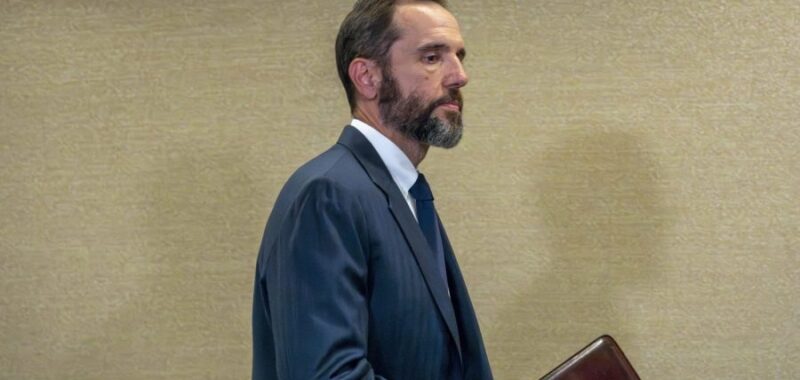
Like all veteran criminal defense lawyers, I have faced unwinnable trials. Early on, a mentor offered comfort on the eve of certain catastrophe: “The prosecutors,” he said, “will always do something to help.”
Over the next 40 years, that turned out to be true. The prosecutor did always gloss something over, or dwell too long on some obscure detail or overreach on some ruling. More than a few “unwinnable” cases ended in acquittals.
But no guilty defendant has ever received more help from his prosecutors than President-elect Donald Trump.
First, Attorney General Merrick Garland waited almost two years before appointing Special Counsel Jack Smith to launch an investigation. That delay allowed Trump, with the assistance of the Supreme Court and District Judge Aileen Cannon, to stall his criminal cases until trial dates drifted past the election. Garland had placed Smith in an impossible position.
Now, Smith shows every sign of following Garland’s model. He has invoked Justice Department policy against prosecuting a sitting president and moved to dismiss both the Jan. 6 case and the documents case. He is folding his tent and simply retiring.
Two pieces of punditry published in the New York Times after the election show what is at stake. Thomas Goldstein (“End the criminal cases against Trump”) and Farah Stockman (“Did the Trump prosecutions damage Democrats’ credibility?”) both argued that Trump’s victory constituted a public verdict on the criminal cases against him. Both claimed, in essence, that the electorate constituted a super-jury.
Who needs a trial when you’ve had an election?
This argument ignores the basic realities of how prosecutors prepare a case and manage the pretrial release of information. The fact is, the Election Day “jury” of voters had access only to the tip of an iceberg of evidence on the election interference and Florida documents cases that Smith’s tardy but intensive investigation amassed.
We have no access to Smith’s files. But we know from the public record and news reports that he streamlined his case in an effort to get it promptly to trial, and that he interviewed and compelled testimony from numerous witnesses, both cooperative and resistant. We know that the information that he has released has been severely redacted. Smith has — as any prosecutor would have — reams of transcripts and documents that he has not yet disclosed. (Fani Willis, the district attorney prosecuting Trump in Georgia, certainly did not streamline her case, but she too possesses heaps of undisclosed evidence.)
It could be that Smith has not released some of this evidence because of the prosecution’s endemic desire to preserve as much tactical surprise as possible and to protect the privacy of witnesses who may later prove unneeded in a high profile case. In any event, the Rules of Criminal Procedure, grand jury secrecy laws and prosecutors’ ethical codes combine to prevent premature contamination of the trial jury pools with factual material not yet tested by adversarial scrutiny.
But now Smith will have no federal trials left to protect, and his silence has become more than just discretion. As the Times commentaries made clear, silence on the part of the prosecutors fuels claims that there was never a plausible case against Trump in the first place. Postures miming reverence for the rule of law will have the effect of fostering caricatures of the Department of Justice’s efforts to bring the law to bear on the insurrection and the classified documents — of seemingly corroborating Trump’s claims that the department had been “weaponized,” and that he is its victim.
Smith is authorized to compile a report, as Robert Mueller did. With the approval of the attorney general, he can release it.
I expect any Smith report would be comprehensive, balanced and meticulous. If Smith releases a report, much of the public would consider it carefully. If Smith (or Garland) continue to stand mute, the public will be encouraged to see their haughty silence as a confession of a partisan prosecution.
There is no way for Smith and Garland to simply freeze things into a status quo. The unredacted files that Garland and Smith leave behind will be there for Trump’s new Justice Department to use, whether it is Pam Bondi (who has said that “prosecutors will be prosecuted”) or Todd Blanche (Trump’s personal lawyer, who has been tapped for deputy attorney general). The files will be available for retaliation against witnesses and for aggressive and unchallengeable disinformation campaigns.
The facts that the special counsel’s investigations gathered and evaluated at great expense belong to the public. The public should have them.
James Doyle is a lawyer and author in Boston.

